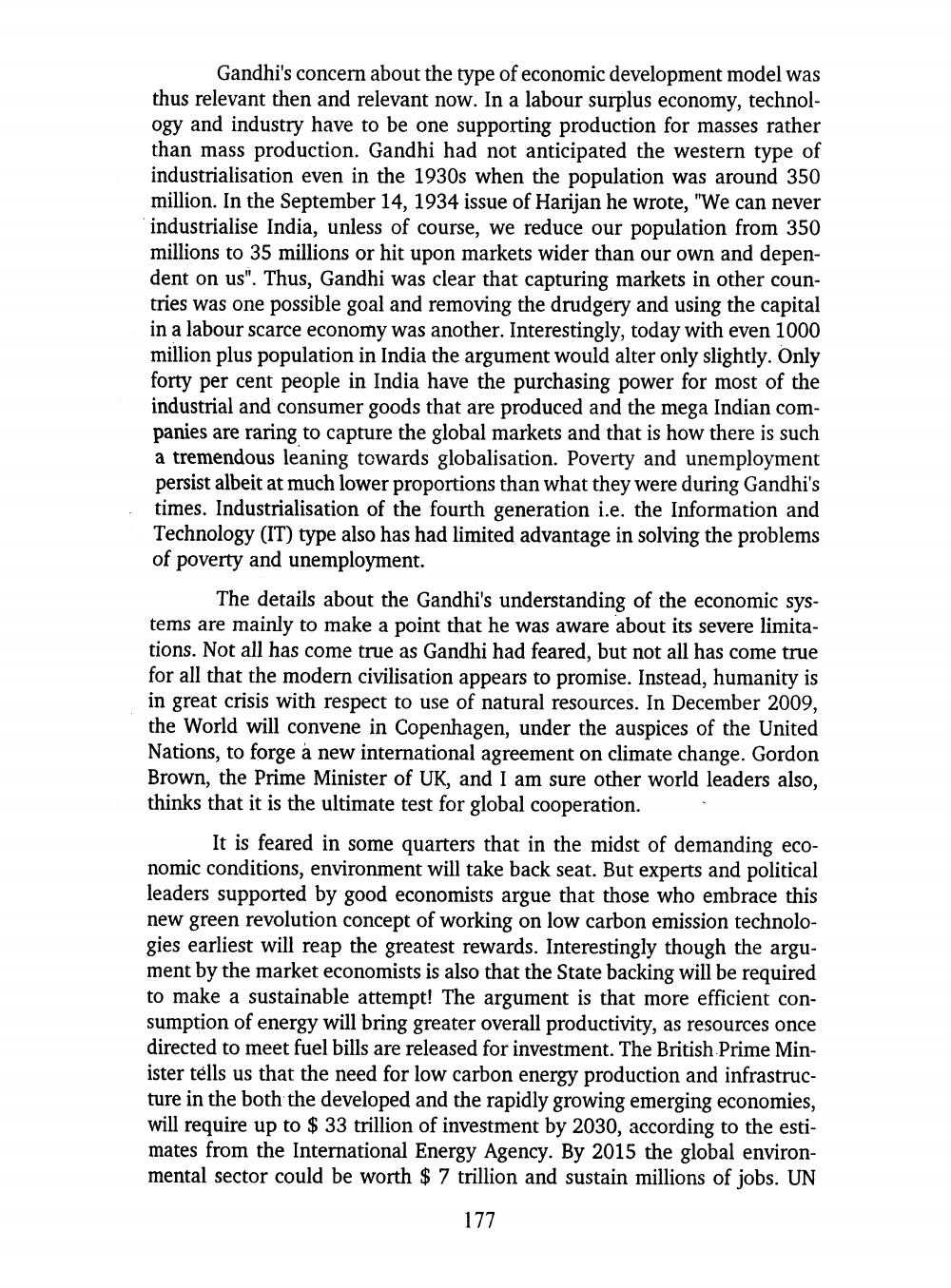________________
Gandhi's concern about the type of economic development model was thus relevant then and relevant now. In a labour surplus economy, technology and industry have to be one supporting production for masses rather than mass production. Gandhi had not anticipated the western type of industrialisation even in the 1930s when the population was around 350 million. In the September 14, 1934 issue of Harijan he wrote, "We can never industrialise India, unless of course, we reduce our population from 350 millions to 35 millions or hit upon markets wider than our own and dependent on us". Thus, Gandhi was clear that capturing markets in other countries was one possible goal and removing the drudgery and using the capital in a labour scarce economy was another. Interestingly, today with even 1000 million plus population in India the argument would alter only slightly. Only forty per cent people in India have the purchasing power for most of the industrial and consumer goods that are produced and the mega Indian companies are raring to capture the global markets and that is how there is such a tremendous leaning towards globalisation. Poverty and unemployment persist albeit at much lower proportions than what they were during Gandhi's times. Industrialisation of the fourth generation i.e. the Information and Technology (IT) type also has had limited advantage in solving the problems of poverty and unemployment.
The details about the Gandhi's understanding of the economic systems are mainly to make a point that he was aware about its severe limitations. Not all has come true as Gandhi had feared, but not all has come true for all that the modern civilisation appears to promise. Instead, humanity is in great crisis with respect to use of natural resources. In December 2009, the World will convene in Copenhagen, under the auspices of the United Nations, to forge a new international agreement on climate change. Gordon Brown, the Prime Minister of UK, and I am sure other world leaders also, thinks that it is the ultimate test for global cooperation.
It is feared in some quarters that in the midst of demanding economic conditions, environment will take back seat. But experts and political leaders supported by good economists argue that those who embrace this new green revolution concept of working on low carbon emission technologies earliest will reap the greatest rewards. Interestingly though the argument by the market economists is also that the State backing will be required to make a sustainable attempt! The argument is that more efficient consumption of energy will bring greater overall productivity, as resources once directed to meet fuel bills are released for investment. The British Prime Minister tells us that the need for low carbon energy production and infrastructure in the both the developed and the rapidly growing emerging economies, will require up to $ 33 trillion of investment by 2030, according to the estimates from the International Energy Agency. By 2015 the global environmental sector could be worth $7 trillion and sustain millions of jobs. UN
177




